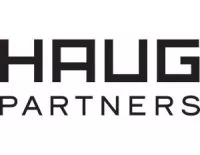On December 9, 2021, Haug Partners defeated two discovery motions brought by Environmental Manufacturing Solutions, LLC (“EMS”) against Fluid Energy Group Ltd. (“Fluid”), in an opposition proceeding before the U.S. Trademark Trial and Appeal Board (“TTAB”). The TTAB's opinion highlights the importance of undertaking a good faith effort to resolve a discovery dispute before filing a discovery motion.
The underlying discovery dispute involved Fluid's objections and responses to EMS's Requests for Production, Requests for Admission, and Interrogatories. EMS submitted over 40 pages of briefing. In denying EMS's motions, the Board observed that “Trademark Rules 2.120(f)(1) and (i)(1), 37 C.F.R. §§ 2.120(f)(1) and (i)(1), require the party seeking to compel . . . [to] support its motion with a showing that a good faith effort was made to resolve with the other party the issues presented in the motion but that it was unable to do so.” The purpose of this rule, the Board explained, is “to promote a frank exchange between counsel to resolve issues by agreement or at least narrow and focus the matters in controversy before judicial resolution is sought.”
Looking to the parties' prior correspondence, the Board noted the “accusatory and antagonistic tone” taken by EMS's counsel, which it found “certainly not conducive to a meaningful discussion of issues and their potential resolution.” The Board observed that EMS's counsel maintained “its adversarial and uncooperative stance” throughout its correspondence and quoted specific portions of EMS's correspondence supporting its opinion. For example, in connection with one Request for Admission, EMS's counsel asked “Andrew – you really need me to explain to you what this RFA asks?” and stated “I will not go through this exercise for each of these bad faith objections.” The Board then found that “very little of the discovery requests that [were] the subject of [EMS's] motions [were] actually raised in the correspondence” and held that EMS's “refusal to address and particularly discuss each of the responses which it found deficient [was] improper and undercut[] any claim of making a good faith effort to resolve the issues presented in the motions.”
Ultimately, the Board concluded that EMS “placed the cart before the horse, choosing to fully explain its position as to each disputed response only in the briefing of its motions . . . rather than in a meet and confer with Applicant.” Accordingly, the Board denied EMS's discovery motions without ever reaching the merits.
This opinion serves as an important reminder to TTAB practitioners of the importance of civility, and that parties should make a good faith effort to resolve discovery disputes before bringing them to the Board.
Fluid is represented by Ben Natter, Andrew S. Roper, Michael Barer, and Michael J. Harris, of Haug Partners. The opinion is available here.
The content of this article is intended to provide a general guide to the subject matter. Specialist advice should be sought about your specific circumstances.





